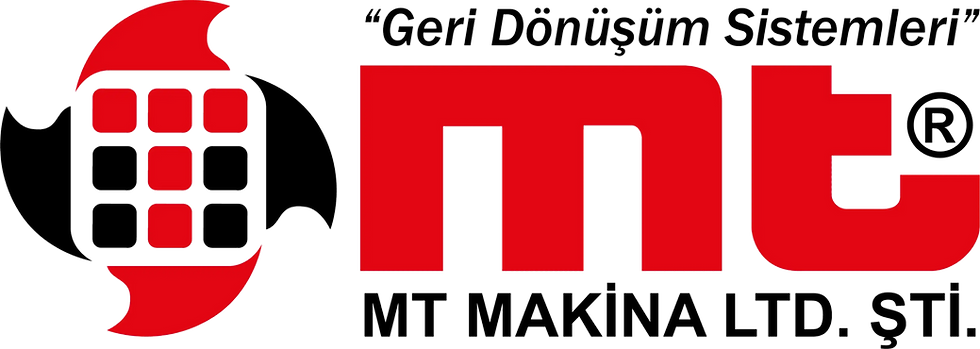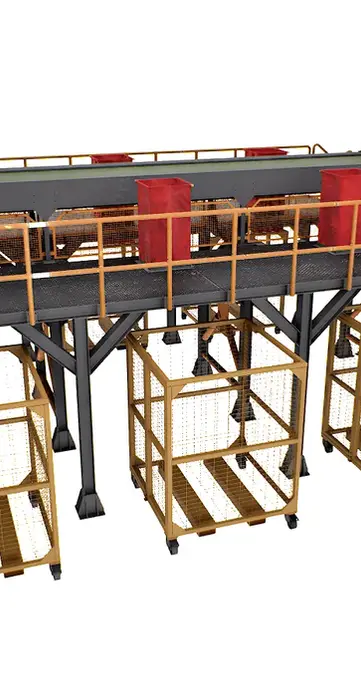.webp)
Provides Economic Gain
The use of compost fertilizer contributes to the protection of natural resources, increases agricultural productivity and reduces costs in the long term.
.webp)
Erosion and Soil Remediation
Compost fertilizer production facility is used for soil improvement purposes in erosion control projects.
.webp)
Supports Beneficial Microorganisms
Compost fertilizer production encourages the growth of beneficial bacteria and fungi, converting organic waste into humus.
.webp)
Eco-Friendly and Sustainable
The composting process reduces the carbon footprint and minimizes environmental impacts by reducing methane emissions.
.webp)
Improves Waste Management
Compost fertilizer production facility provides sustainable waste management by efficiently processing organic waste.
.webp)
Reduces the Need for Chemical Fertilizers
Regular use of compost fertilizer reduces the use of chemical fertilizers, causing less damage to the environment.
.webp)
Increases Soil Fertility
Compost fertilizer production facility improves soil structure and supports plant growth by enriching the organic matter content of the soil.
Compost Fertilizer Production Plant,
Sustainable Agriculture and Waste Management Solutions;
Our compost fertilizer production Plant is a Plant where organic waste is efficiently processed and converted into natural fertilizer. These Plant play an important role in both environmental protection and agricultural efficiency. Compost fertilizer enriches the soil, supports plant growth and reduces the use of chemical fertilizers. Our compost fertilizer production Plant manages the process of decomposing organic waste by microorganisms under controlled conditions and turning it into humus. In these Plant, food waste, garden waste, agricultural waste and other organic materials are processed to obtain high quality compost fertilizer.
Compost Spinner accelerates the fermentation process by allowing organic material to come into contact with oxygen. It helps to obtain a homogeneous compost mixture. Manure Crushing Machine breaks organic materials with high moisture content. It ensures faster and more efficient decomposition of organic material. Fertilizer Spreader provides a more effective fermentation process by distributing the compost evenly. It increases the homogeneity of the mixture. Manure Mixer improves the fermentation process by mixing organic waste and compost. It supports the activity of microorganisms. Rotary Dryer reduces the moisture content of the compost, resulting in a drier and more stable product. Reduces storage and transportation costs. Rotary Cooler reduces the temperature of dried compost and stabilizes it. It improves the quality of the product. Rotary Screen examines the compost and separates the unwanted large pieces. It ensures obtaining homogeneous and high quality compost. Rotary Drum Coating Machine controls the release of nutrients by coating Compost granules. It improves product quality and ensures that nutrients reach plants effectively. Compost Packer packages the Compost and makes it ready for sale. It allows the product to be stored for a long time and easy to transport.
Compost Fertilizer Plant
Advantages;
Compost improves the structure and water retention capacity of the soil by increasing its organic matter content. Compost naturally controls plant diseases and pests. Regular use of compost causes less harm to the environment by reducing the need for chemical fertilizers. Compost encourages the growth of beneficial bacteria and fungi that decompose organic matter into humus. Landfilling minimizes environmental impacts by reducing methane emissions. The composting process significantly reduces the carbon footprint. Compost fertilizer production Plant plays an important role in sustainable waste management and soil fertility. As MT Makina, we optimize compost fertilizer production processes with our high-quality equipment and expert team. You can contact us for solutions that suit your needs.
Turn Waste into Fertilizer,
MT Machinery for Fertile Lands..!
Compost Fertilizer Production Plant
Performance and Efficiency

Increases Soil Fertility
Compost fertilizer production facility improves soil structure and supports plant growth by enriching the organic matter content of the soil.

Reduces the Need for Chemical Fertilizers
Regular use of compost fertilizer reduces the use of chemical fertilizers, causing less damage to the environment.
.webp)
Improves Waste Management
Compost fertilizer production facility provides sustainable waste management by efficiently processing organic waste.
.webp)
Supports Microorganisms
Compost fertilizer production encourages the growth of beneficial bacteria and fungi, converting organic waste into humus.

It is used to increase soil fertility in agricultural areas and support sustainable agricultural practices. It is used to increase the organic matter content of the soil in gardens, parks and landscape areas. Municipalities and local governments support environmentally friendly practices by using compost in parks and green areas. It is used in erosion control and soil improvement projects.
Various animal manures such as slaughterhouse waste, chicken manure, pig manure, cattle manure. Agricultural wastes such as straw, crop residues, soybean meal, bean residue, rice bran. Industrial wastes such as wine residue, vinegar waste, sugar production waste. Domestic organic waste such as food waste, vegetable and fruit waste. Mineral wastes such as humic acid, bentonite, dolomite. Sludge wastes such as sewage sludge, river and pond sludge.
Compost Fertilizer Production Facility,
Areas of Use;
.webp)
Compost Fertilizer Production Facility
Technical Specifications
Our food waste packaging separation facility has been developed to separate expired and packaged food products with high efficiency. Equipped with automatic conveyor systems, crushers, sieves and separators, the facility effectively separates organic and packaging components. Click to review the technical details.

Compost Fertilizer Production Facility Video Gallery
You can watch how our compost fertilizer production facility works and the stages through which waste is transformed into organic fertilizer in our video gallery. Discover applications regarding mixers, aeration systems, sieves and compost maturation processes. Click to watch the videos to see the process up close with real images.
- 01
- 02
- 03
- 04
- 05
- 06
- 07








